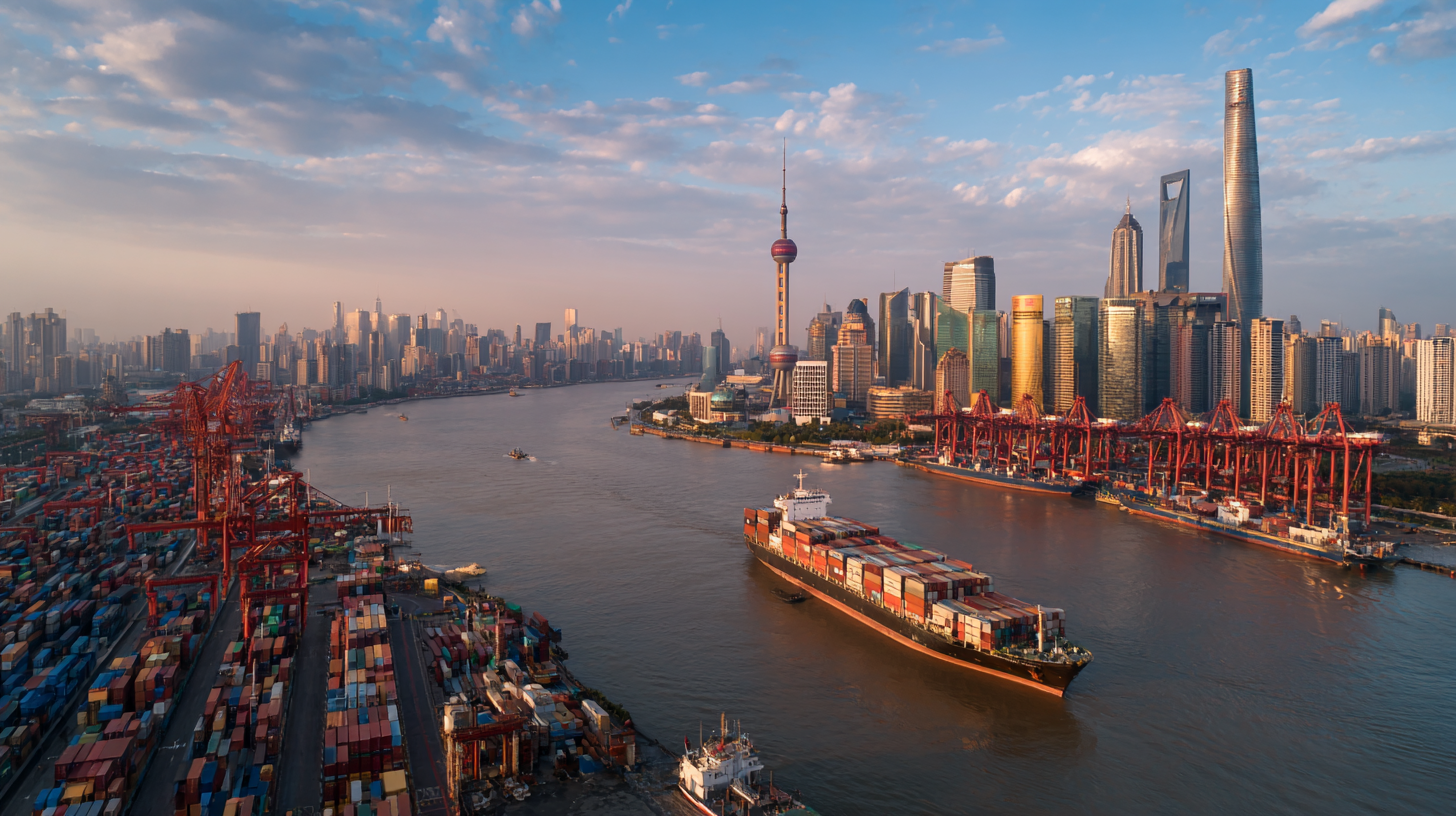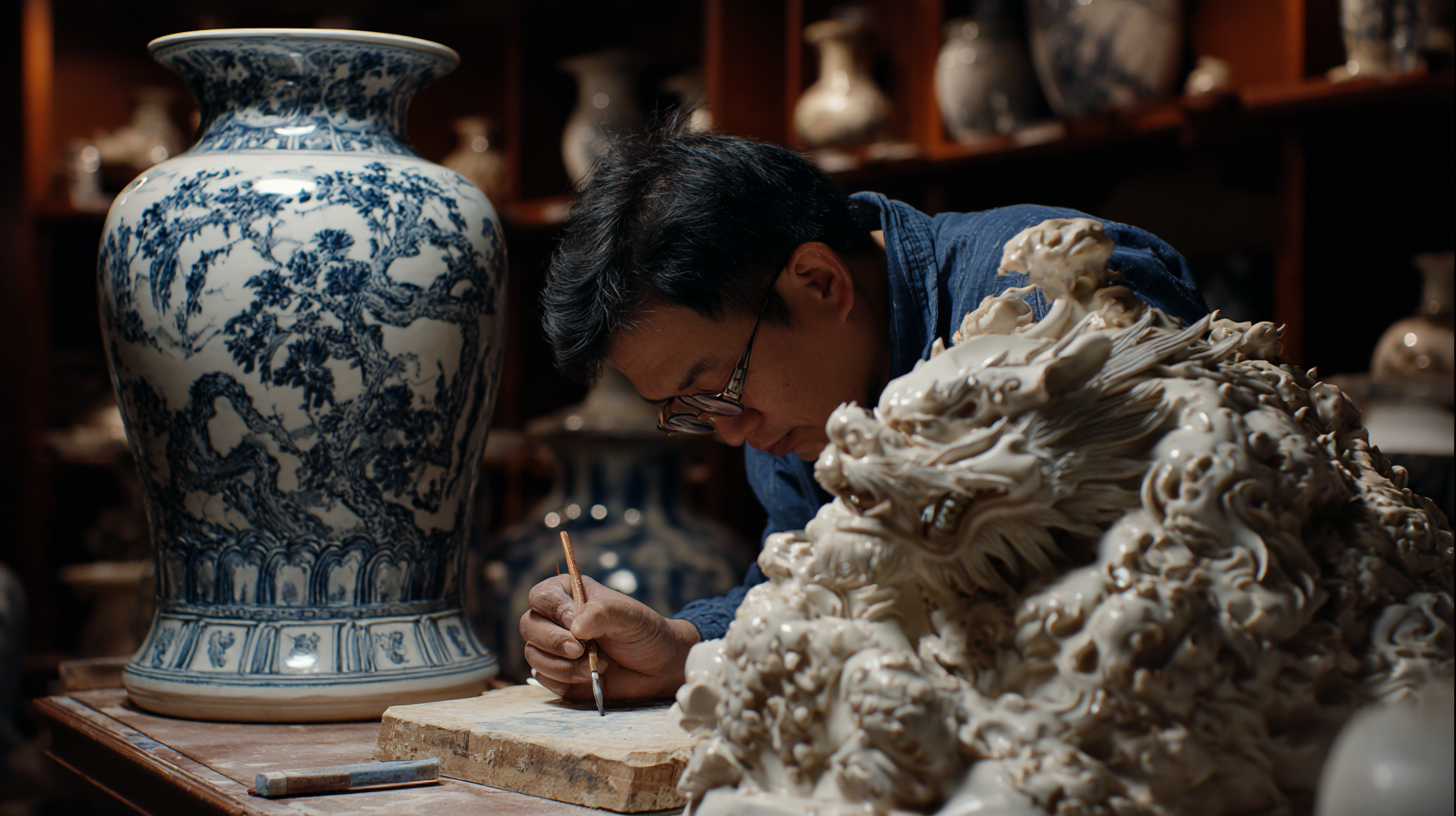

In the ever-evolving global marketplace, the art of craftsmanship has become a cornerstone of successful trade, particularly highlighting the trust placed in China's leading suppliers. According to a report by the International Trade Centre, China's manufacturing output accounted for 28.7% of the world's total in 2020, underscoring its position as a powerhouse in production quality and innovation. This reputation is further supported by a survey from the Boston Consulting Group, revealing that 70% of global buyers prioritize craftsmanship and reliability when selecting suppliers. As businesses seek to enhance their competitive edge, understanding the intricate balance of quality, efficiency, and cost-effectiveness in Chinese suppliers is more crucial than ever. This article will delve into the factors that contribute to this trust, illustrating why craftsmanship in China stands at the forefront of global trade dynamics.

In today's global marketplace, the craftsmanship of suppliers plays a crucial role in enhancing the efficiency and reliability of supply chains. According to a report by McKinsey, companies that prioritize craftsmanship see a 15-20% reduction in operational costs due to improved processes and product quality. This not only increases customer satisfaction but also drives brand loyalty, ultimately giving businesses a competitive edge. The meticulous attention to detail found in Chinese manufacturing, particularly in sectors like apparel and electronics, underscores why so many global buyers deem these suppliers trustworthy.
Tip: To ensure you select the best suppliers, assess their commitment to craftsmanship by looking at their certifications and past project outcomes.
Craftsmanship directly influences the sustainability of supply chains. A survey conducted by Deloitte revealed that organizations focusing on high-quality craftsmanship achieve a 25% increase in supply chain resilience. This resilience is key in navigating today’s market uncertainties, enabling companies to adapt quickly and efficiently. Investing in trusted suppliers not only strengthens your supply chain but also promotes responsible sourcing practices.
Tip: Evaluate your suppliers based on their craftsmanship standards and their sustainability practices to build a more resilient supply chain.
| Supplier Category | Products Offered | Average Lead Time (Days) | Quality Rating (1-5) | Sustainability Practices | Customer Trust Score (1-100) |
|---|---|---|---|---|---|
| Textiles | Clothing, Fabrics | 30 | 4.5 | Recycled Materials | 85 |
| Electronics | Consumer Electronics, Components | 25 | 4.8 | Energy Efficient Production | 90 |
| Furniture | Wooden & Metal Furniture | 40 | 4.6 | Sustainable Sourcing | 88 |
| Toys | Educational & Recreational Toys | 35 | 4.7 | Non-toxic Materials | 86 |
| Machinery | Industrial Equipment, Robotics | 50 | 4.9 | Waste Reduction Initiatives | 91 |
In the world of manufacturing, China has solidified its reputation as a leader by consistently delivering quality and innovation. Recent discussions at the World Economic Forum highlighted the transformative crossroads that the manufacturing sector is experiencing, emphasizing how the integration of advanced technologies is reshaping production processes. This transformation aligns with the outcomes of the "Made in China 2025" initiative, which assessed China's global competitiveness and reduced dependency on foreign products, showcasing the nation’s growing prowess in the manufacturing landscape.

Moreover, advancements in smart manufacturing, fueled by generative AI and Industry 4.0 principles, have positioned China’s manufacturers at the forefront of excellence. These developments are not just improving operational efficiency but also enhancing product quality and responsiveness to market demands. As global buyers increasingly recognize these advancements, trust in Chinese suppliers continues to grow, paving the way for stronger partnerships and collaborative innovations that challenge traditional manufacturing paradigms.
In the evolving landscape of global trade, China's best suppliers have established themselves as leaders in quality assurance, fostering an environment of trust among international buyers. According to a report by McKinsey & Company, around 75% of global buyers name quality assurance as their top criterion when selecting suppliers. This statistic highlights the increasing need for manufacturers to implement robust quality control measures that not only meet but exceed buyer expectations.
One of the key practices that enhance buyer confidence is the adherence to international quality standards, such as ISO 9001. Data from the International Organization for Standardization (ISO) indicates that companies certified with ISO standards experience a 20% increase in their customer satisfaction ratings. Additionally, Chinese manufacturers are increasingly adopting advanced technologies like Artificial Intelligence and IoT for real-time quality monitoring, reducing defect rates by over 30%, as reported by Statista. This commitment to excellence not only boosts confidence among buyers but also secures long-term partnerships and a competitive edge in the global market.
In recent years, sustainability has emerged as a focal point in the global marketplace, prompting buyers to seek suppliers who not only deliver high-quality products but also adhere to ethical production standards. Chinese artisans and manufacturers are increasingly stepping up to the challenge, integrating sustainable practices into their craftsmanship. From the responsible sourcing of raw materials to the implementation of eco-friendly techniques in production, these suppliers are redefining what it means to be a leader in their field.
Moreover, many of China’s top suppliers have adopted stringent ethical standards, ensuring fair labor practices and promoting social responsibility within their communities. This commitment resonates with global buyers who value transparency and integrity in their supply chains. By fostering a culture of sustainability and ethics, these suppliers are not only enhancing their own reputations but also winning the trust of discerning buyers worldwide, who recognize that true craftsmanship goes hand in hand with responsible practices. As a result, Chinese craftsmanship is not just about product excellence; it is also a testament to a commitment towards a more sustainable and equitable future.
In today's global marketplace, the role of technology in enhancing supplier relationships cannot be underestimated. For manufacturers and businesses relying on China's best suppliers, advanced technologies such as digital communication platforms and supply chain management software have transformed the way they interact. With real-time data sharing, buyers can track production processes, manage inventory more effectively, and address issues promptly. This level of transparency fosters trust and ensures that both parties are aligned in their objectives.

Furthermore, technological innovations like artificial intelligence and machine learning are elevating the craftsmanship of Chinese suppliers. These tools enable precise quality control and predictive analytics, ensuring that products meet global standards consistently. By leveraging technology, suppliers can enhance their responsiveness to buyer needs and maintain a competitive edge, making them increasingly attractive to global buyers. As these relationships become more collaborative and data-driven, the fusion of craftsmanship and technological expertise not only boosts productivity but also strengthens partnerships across borders.